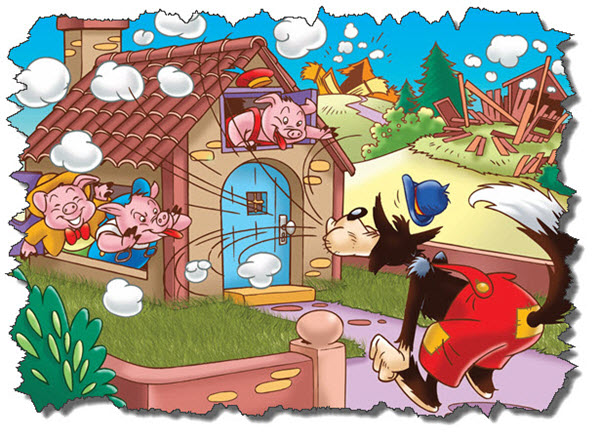Procrastination is a symptom of a much deeper problem: our inability to deal with obligations and the different ways that we respond to them. It’s linked to heart problems such as cardiovascular disease and hypertension. If you don’t learn how to get over procrastination, stress will eventually take your health down with your productivity.
What Goes On With Procrastination?
It will be clearer for you if we relate it to a famous story, The Three Little Pigs. We all know how it goes: There are three pigs that want to build houses but two of them are lazy. They end up building houses from straw and sticks. The third pig isn’t lazy, so he built his from bricks. For the sake of explaining procrastination, we’re going to modify the story a little bit. Let’s imagine that the first pig got stressed out by the idea of building a house and instead binged on Netflix and potato chips without a roof over his head. What happened when the wolf came by? Well, he had no protection and he ended up running away to his brother in the stick house. Except this one didn’t build a stick house either, he was busy moaning and complaining to his brother about how much work it was to build a house and how he was the victim of all this and that the wolf should just stay away from them. Meanwhile, the third brother is listening closely and started building a house out of bricks. The wolf and the first pig came running to the brick house and all three pigs hurried to get inside of the third pig’s brick house. The wolf wasn’t able to get in. He gave up and walked away.

The Triune Brain Theory
So, what does this reworked fairy tale tell us? It actually tells us how each of us responds to procrastination and stress/pressure in general. There’s a theory called the Triune Brain Theory which says that we don’t have one brain but three brains which are wrapped around each other like Russian matryoshka dolls. The physical brain is at the center and it wants to get its physical needs met. This includes things like safety, security, sex, hunger, shelter, money, and achievement. It’s also the strongest of the three. The next brain is the emotional brain and it’s concerned with getting all of its emotional needs met. It involves happiness, friendships, and positive connections with other people. The third brain, on the other hand, is our thinking brain and it focuses on personal goals, intellectual stimulation, and learning. Our physical brain is the strongest and the only thing it really cares about is getting immediate, physical gratification. It hates waiting for rewards and every second of the day, it’s trying to get the most pleasure possible for the least amount of work. This is why when we are faced with something that we don’t want to do or which will take a lot of work, we want to avoid it. Our physical brain tells us, “Nope. I don’t want that. That does nothing for me. Let’s go eat ice cream and binge Parks and Recreation for the 5th time.” The first pig’s response to the pressure of building a house is to immediately dive into something that will give himself immediate gratification. About half of all people out there have this as a default reaction to stress/pressure.
The Cure
Here’s the good news: It doesn’t matter which you do, the cure is the same. So, how do we become like the third pig who builds the brick house? It’s easy. We take action. I know it seems obvious but psychology backs this up. This article from the Huffington Post talks about the idea of courage, where it’s located in the brain and how we can train our brains to become more courageous in taking action. Courage, for us, means “doing what you know you need to do even if you don’t want to.” That is the cure. By doing the right things and making this a habit, you will learn how to be like the third pig in our story: always courageous and helping yourself and others as a result. If you are interested in learning more about how to become more like the third pig in our story and how to completely cure your procrastination, check out the following YouTube link for more information and techniques that will help you learn how to get over procrastination.